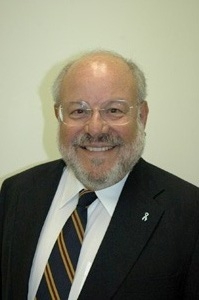Just out is a brilliant book, highly important and beautifully written, by Scott Chaskey, a Long Island, N.Y. farmer (for 25 years he has run the Peconic Land Trust's Quail Hill Farm in Amagansett), poet and crusader for local, organic, sustainable agriculture. Seedtime: On the History, Husbandry, Politics, and Promise of Seeds http://www.rodaleinc.com/products/books/seedtime-history-husbandry-politics-and-promise-seeds is about something humanity has been deeply involved in and dependent upon throughout our time on earth: seeds.
Chaskey, in Seedtime, begins by telling of entering as a farmer into "the realm of seeds...to witness a kind of magical reality."
But that "magical reality" is under threat, he declares. "As we face the challenges of climate change and the loss of prime agricultural soils, we need a diverse seed supply to counter the unpredictable and the unknown. Instead, we continue to lose plant species--and the seeds of the future--at an alarming rate."
"A seed," he explains, "contains an embryo, a miniature plant awaiting the moment of transition. Seed leaves store food within the endosperm--the seed coat--that will nourish the seedling plant when it emerges."
"A plant's coming into being, or maturation is such a quiet progression that we tend to focus on the fruit, the colorful prize of production and the vessel of taste."
"Our entire food supply is a gift," a result of the emergence of flowering plants 140 million years ago, he says, and "our health and food futures are entwined with the way we choose to nurture or manipulate the seeds of that natural revolution."
"The value of conserving biodiversity cannot be overstated," he relates. "Biodiversity is the source of our food....Our increasing tendency to homogenize all aspects of our ecosystems limits our ability to adapt."
Today the food supply for humanity is endangered--notably by genetic engineering or modification, Chaskey writes. "The altered organism, a GMO [genetically modified organism], is the result of a laboratory process by which a gene (or genes) of one species is inserted into another species. This process is fundamentally different from traditional breeding."
In genetic modification, genes of animals, plants, fish, insects, among other life forms, are combined. A giant in this is Monsanto which synchronizes its production of GMO seeds with the production of pesticides it manufactures.
Also, there is a push to "limit diversity" of seeds which links to, among other things, "consolidation in the seed industry" and "mass marketing considerations."
Monsanto, further, has been a leader in patenting GMO seeds.
Chaskey provides a detailed history of Monsanto, founded in 1901 by a "self-taught chemist" who named it for his wife whose maiden name was Monsanto, and how it became the leading producer of cancer-causing PCBs and 2,4,5-T, "the basis for Agent Orange," the poison used as a defoliant in the Vietnam War, as well as DDT.
"Is it at all wise or beneficial for a corporation with a scarred legacy...to control almost one-third of the global seed trade?" asks Chaskey.
And he tells of how the Monsanto GMO seeds have been "developed to perform in tandem with heavy inputs of chemical fertilizers and pesticides." Indeed, an early GMO seed was "Monsanto's first 'Roundup Ready' soybean, genetically modified to resist the application of Monsanto's foundational herbicide product, Roundup."
There is a global challenge to GMOs, notes Chaskey. "The planting of GMO crops is largely banned in the 28-nation European Union," he relates. In California, individual counties have banned GMO crops and "GMO-Free activists are aggressively campaigning throughout this country and worldwide." There are now, however, hundreds of millions of acres, "concentrated in the U.S., Canada, Argentina, Brazil and China, planted with GMO crops.
"The health of our fields, the health of our plant communities, and the future of our food supply will depend on whether, as a global culture, we can learn to respect the whole of the biological community, and to accept our role as citizens of it (and to honor those who still retain the connection)," writes Chaskey.
(Note: You can view every article as one long page if you sign up as an Advocate Member, or higher).





